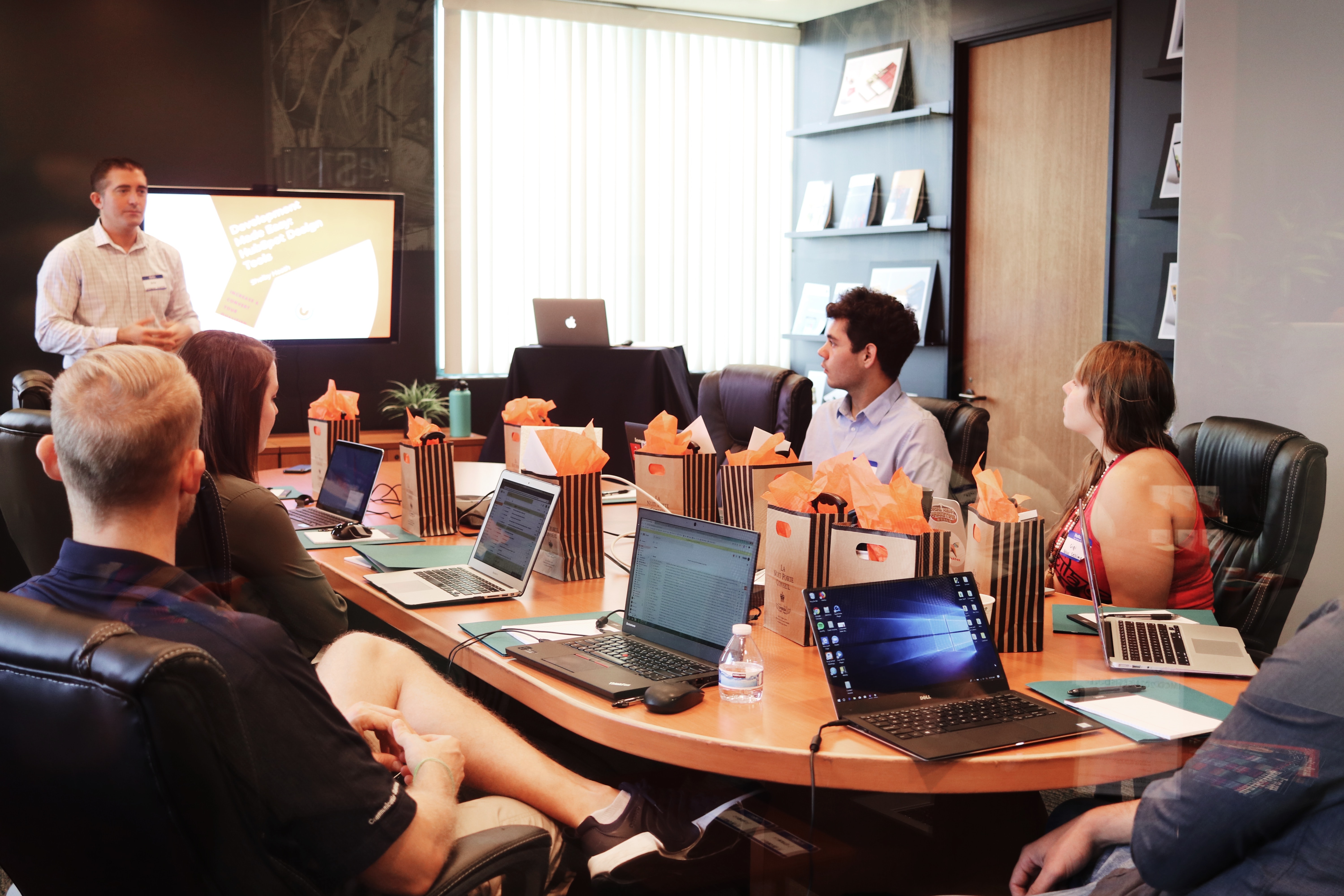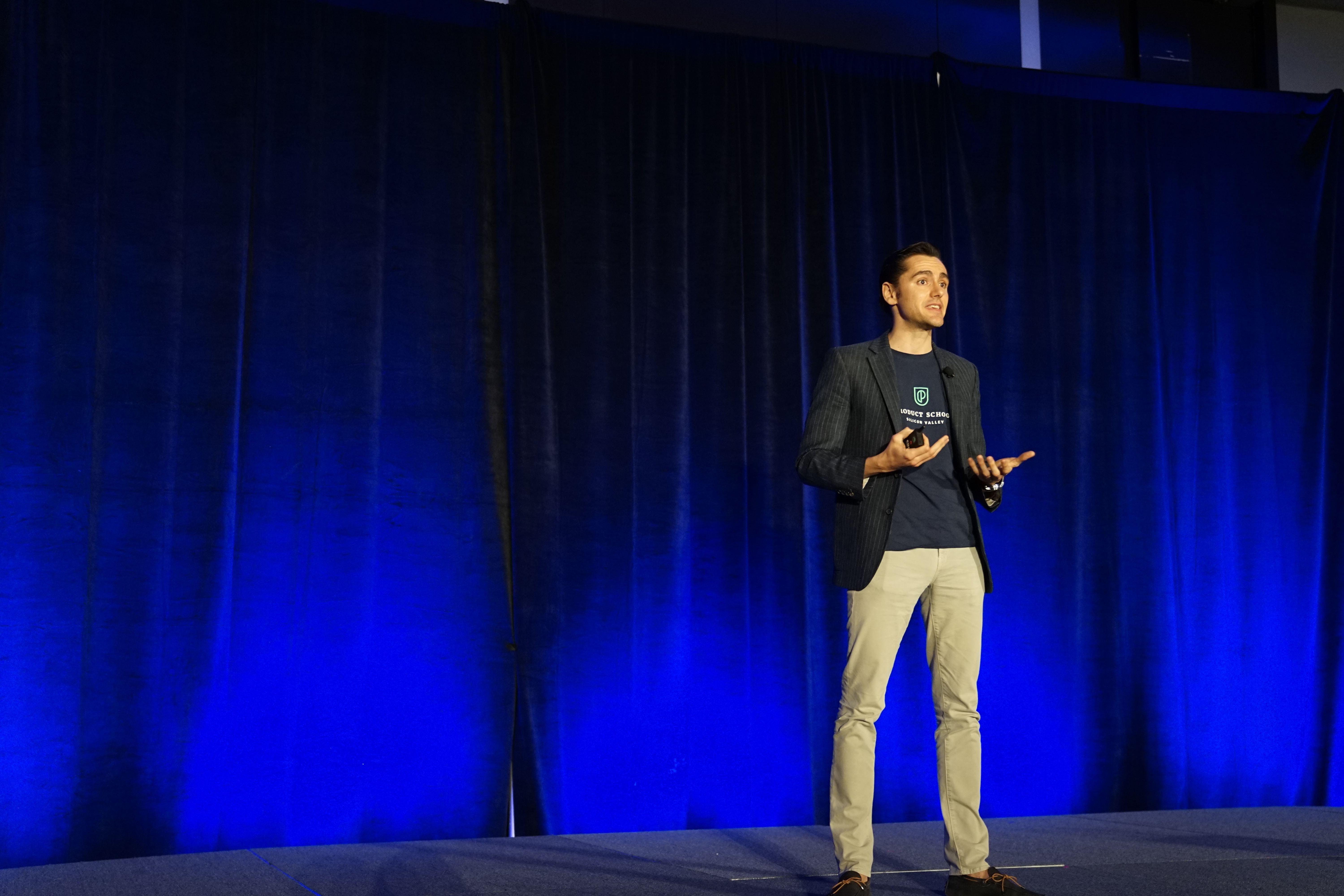An invite to a face-to-face interview is an exciting email to receive. Perhaps you have already gone through the early interview stages and up to this point, the evidence would suggest everything has gone to plan. You have made it to the room!
After a quick celebration at your seat, you read on to discover that part of the face-to-face interview requires a presentation to the interview lineup. If you are not a natural public speaker the initial excitement quickly becomes dread and fear. Try as you might, it is hard to put that presentation anxiety to sleep.
It doesn’t matter how well prepared you are or how thorough your research has been. You may be the most qualified candidate. You may be highly certified and have all the academic qualifications in the world, but if public speaking is your kryptonite there is no getting over the looming hurdle a presentation presents.
Or maybe you have a new job. You love it, but it requires you to present regularly. It’s been a month or so now, but you just can’t get comfortable with public speaking to your management team, stakeholders, or colleagues.

These are our 10 top tips on how you can improve your interview presentation skills and become a confident public speaker.
Do your research.
It is important to mention that in this instance we don’t mean company research. Of course, do that too, but we mean to deconstruct what great public speakers do.
The internet is awash with coverage from great public speakers. There are countless videos featuring first-class orators. Think Winston Churchill, Martin Luther King, and JFK. Watch the footage and break down what they do. As you watch, observe their approach, their tactics, and their execution.
Once you have identified these, try to mirror them. Speak aloud and copy them. Don’t worry if you sound silly. Practice makes progress, and you’ll be glad you did it if it means you don’t stumble over your words during your presentation.
Focus on your audience, not yourself.
In a face-to-face interview situation, the panel may be strangers but they are ‘friends’. Yes, you want that job, but they also need to fill their role. They want you to succeed and have a vested interest in your success.
Many insecurities during presentations come about because we are worried about how we come across. Do I sound silly? Am I making mistakes?
If we switch the attention from ourselves to our audience our focus becomes the content of our presentation, not the communication of our content. How you look and sound will become less important.

Know your stuff.
If you know your presentation inside out, you can let go and be yourself. You can communicate better and connect with your audience. With company fit becoming more and more important, letting an interview panel see the real you could be make or break.
If you are looking at cue cards or have your eyes on a screen during your presentation, you will not be able to be present in that conversation. A good interview or meeting is one with energy exchange. If you know your stuff, there’ll be fireworks.
Get specific about what you need to improve.
Be honest about what you need to improve during the presentation. Do you appear nervous? Do you over gesticulate? Do you stutter?
Once you know what your targets for improvement are, you can address them individually.
Video is a great tool. Ideally, you should ask a trusted partner or friend to review the video with you.
Awkward, yes. However, better awkward now than wasted time shooting in the dark.

Create a presentation alter ego.
Beyonce has Sasha Fierce, and what is good enough for Beyonce is good enough for you!
In other words, an alter ego helps to break that disadvantageous loop of “I am so bad at interview presentations”.
Create an avatar that is the kind of public speaker you would like to be. You should fully imagine and visualise that person. You may even like to give them a different name.
When it is time to take the stage for your interview or meeting presentation…send up the alter ego in your place.
Get support and practice.
If the interview presentation is just the start of your potential public speaking requirements or your role requires you to present regularly then joining a group such as Toastmasters may be a good idea.
Communities such as this help to build confidence in a non-threatening and supportive environment. Being in the company of others with similar concerns is a tonic. The empathy and feedback from the group will allow you to feel less isolated. You will grow in confidence and skill as a result.

Accept constructive criticism and apply it.
Rehearsal is the best way to improve your presentation skills. One sure-fire way to raise your game is to bite the bullet and ask for an audience with those who are better at public speaking than you, and who are willing to give you feedback.
Once you have asked for their advice, you need to practice applying it.
Connect with your body.
For some, delivering a presentation can be so anxiety-inducing that they lose connection to their body. In other words, they are consumed by panic.
To combat this, some experts in the field recommend taking up specific exercises such as yoga or tai chi. Disciplines such as these help to regulate breathing and give you a better mind/body connection.

Listen to your self-talk.
Prior to preparing the interview presentation, you may like to examine your self-talk. For many of us, this chatter is profoundly negative and unkind.
Have a go at gently pausing those negative voices and explore the positive ones. For example, “I have been invited to this interview. They want to hear what I have prepared, so it must have value”.
If you get comfortable with what you have to offer first, the rest will follow.
Improvise to improve.
If you are feeling brave, now may be the time to step out. Some public speaking experts recommend clients head to a local improvisation class to prepare for delivering an interview presentation.
It is suggested that these are incredible opportunities to force yourself to learn to expand your limits for handling the pressure of any public speaking situation.

We hope you have found this helpful.
If you struggle to prepare for your interview or need more hints and tips on how to ace a remote, video or telephone interview we can help. Head over to our employee advice pages here.





